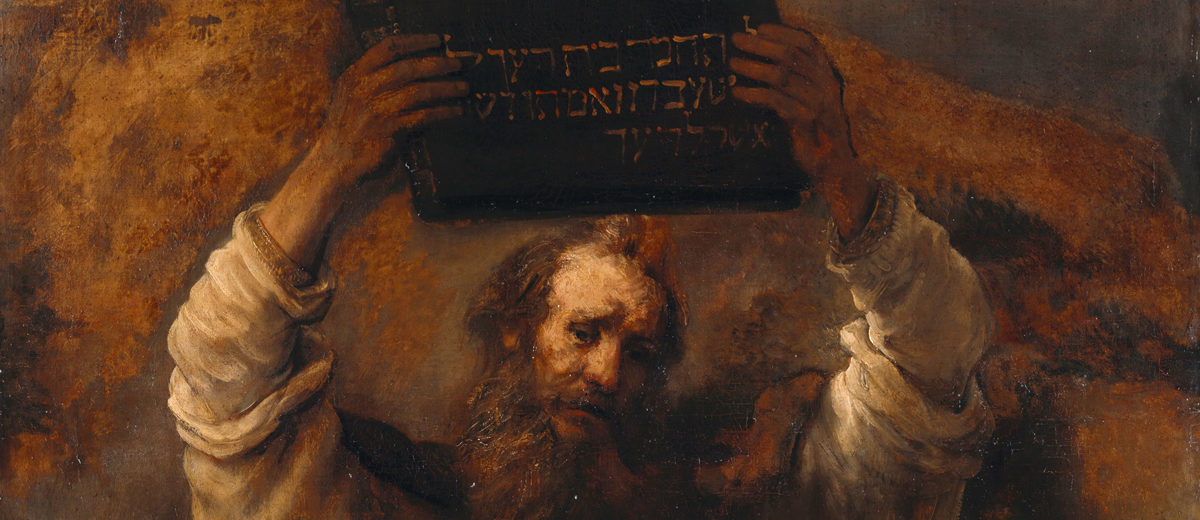Two swallows don’t make a summer, says a Dutch proverb. Yet two recent Dutch books do perhaps signal a significant climate change concerning Christianity in Europe.
One is written by the publisher of the successful spirituality magazine Happinez. As mentioned in an earlier weeklyword, Inez van Oord argues in her book Rebible that ‘we have cuddled buddhas and trees for too long and that now it is time to rediscover our Christian roots’. For our true identity needs to be found in our roots, says van Oord. Which doesn’t mean returning to the stultifying legalism of yesterday’s church, she argues, but rather drawing fresh inspiration from the ancient wells of scripture.
That this new sound comes from a leading spokesperson for the New Age movement is surprising enough. But a second and more broad-ranging book published just this month comes from the pen of a former editor of a national left-wing newspaper who now believes Dutch society threw out the baby with the bathwater some four or five decades ago.
In her book Ongelofelijk (Unbelievable), Yvonne Zonderop describes her sense of liberation as a young woman after leaving the Catholic church in disgust, along with other members of her family – and her generation. During the sixties and seventies, faith disappeared behind the front door, she writes. Secular became the norm. Freedom, individualism and autonomy became the celebrated values.
Robbed
Yet, Zonderop now realises, this personal liberation has had great social consequences. Something important has been lost. Her generation has raised a whole new generation without Christian roots, which for centuries had nurtured and formed western culture and morality. A common foundation for society has been eroded. Who knows what the Exodus meant? she asks. Who can explain the biblical scenarios Rembrandt painted? And who realises that without Christianity we most probably would not have a democratic constitutional state?
After decades, Zonderop has come to see that her generation had robbed themselves of the cultural context in which they had grown up. Yet now it is becoming obvious that the alternatives to religion for offering meaning and values are few and far between. Millions of Dutch people continue to waver between faith and unbelief. In politics, the Christian heritage keeps resurfacing, she observes, because it is the source of our culture, democracy and ethics.
She quotes a doctoral candidate from the University of Amsterdam who researched individualisation as the motto for Dutch education after World War Two. Observing that babyboomers valued individuality, he concluded: ‘but, woe to you if you did not wear jeans or did not criticise religion!’
Which recalls for Zonderop the comic scene from Monty Python’s Life of Brian in which the Messiah figure tells his crowd of followers that they are all individualists, they are all different; to which the crowd responds by chanting in unison: ‘Yes, we’re all different!’ Then one lone voice pipes up: ‘I’m not.’
Pioneers
Zonderop now views the ideal of individual freedom as having held Dutch society in a strong grip, of which the collective departure from the church is just one example. But freedom has now become a devil’s dilemma: when you make a mistake, you’re on your own. Today’s youth, she argues, seek the support circle of friends to fall back on. Social capital is more important to them than individual freedom. Religion can become a source of meaning for them again.
The loss of togetherness is more broadly felt in society these days, writes Zonderop. People miss the social cohesion formerly offered by trade unions and churches. They miss the ‘vertical dimension’, where someone higher than you is looking after your welfare, whether that be a group leader or God.
The book’s subtitle, About the surprising comeback of religion, refers to the closing chapters which describe a number of new expressions of church in the Netherlands and particularly Amsterdam today. A wave of pioneers is appearing, both within and outside the church, confirming rumours of the death of Christianity as having been greatly exaggerated.
Zonderop ends her book with a surprising citation from a Muslim German-Iranian art critic connecting the loss of the spiritual dimension with the rise of populism.
In his intriguing book, Wonder Beyond Belief: On Christianity, Navid Kermani observes: It is completely understandable that many Europeans are afraid for Islam and seek security in the familiar. If you no longer know your own culture, you can’t be open to other cultures. It is a great shortcoming if you don’t know what Pentecost is. German literature of the 19th century can’t be understood if you don’t see the Christian allusions. Many writers of that time were ministers sons. The whole German literature and music are saturated with Biblical references.
If we don’t know that legacy, we don’t know ourselves. And then we become susceptible for racism, xenophobia and nationalism.
Till next week,



